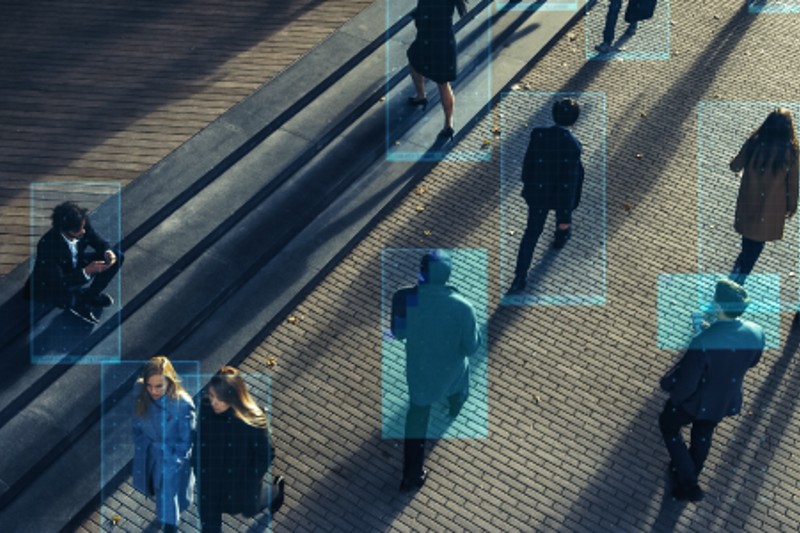The mission of the police service has traditionally been to prevent crime, and in an age of advanced data analytics and AI-driven software, that aim is more achievable than ever. However, a mind-set shift is needed first, to make sure this original mission is still the priority.
There is a huge opportunity to revert to a mission that has accidentally been sidestepped in recent years… A mission to prevent crime, and to prevent a scenario where people become victims in the first place.
Instead, at present, the focus seems to have switched more towards the aftermath of a crime – protecting and supporting victims after the fact. It cannot be overstated how utterly important this work is and any victim of crime should expect an outstanding service. This pivotal strand has progressed in recent years through various initiatives and more sensitive policing, it does however, somewhat bypass the most important part of a prospective ‘victim journey’. That being, to stop people becoming victims in the first place.
In a sense, the current emphasis on victim care could be construed as dealing with failure rather than preventing crime. It would be like applying protective coating to your floor to guard it from a leaking radiator, rather than ensuring your radiator is in good working order or fixing a potential issue before it causes damage to begin with.
That ‘victim journey’ now has a starting point from the moment they become a victim. In many instances, depending on the crime committed, the financial, physical or emotional repercussions are too big to undo, no matter how effective the level of police and partner care.
With the technology at our disposal being more predictive, fast and accurate than ever before, there is a huge opportunity to revert to a mission that has accidentally been sidestepped in recent years, perhaps due to bewildering and overwhelming amounts of data. A mission to prevent crime, and to prevent a scenario where people become victims in the first place.
Focusing on the victim, not the offender
 Recent years have seen some fantastic work carried out to improve the level of care administered to victims of often-horrific crimes. In areas such as domestic abuse or sexual assault, for example, initiatives to improve interviews, preserve evidence, and keep victims engaged at every step, have all received positive acclaim from those scrutinising forces.
Recent years have seen some fantastic work carried out to improve the level of care administered to victims of often-horrific crimes. In areas such as domestic abuse or sexual assault, for example, initiatives to improve interviews, preserve evidence, and keep victims engaged at every step, have all received positive acclaim from those scrutinising forces.
However, by solely focusing on these aspects of victim care, a mind-set can develop. There is an unspoken acceptance that these horrendous crimes are in fact an inevitability, meaning we should best prepare for what happens next. This is a misunderstanding of that original mission.
Yes, crime will always be an inevitability in that broader sense, and improving standards of victim care is a critical strand of improvement for the force, but this can’t come to the detriment of prevention. There must be at least equal attention paid back towards the side of the offender, otherwise there is a risk the force will only ever be dealing with victims.
Almost understandably, this has now become the expectation among many workers in the sector who, primarily, have become accustomed with how to apply best practice to negative situations.
Surely they, almost as much as anyone, would welcome a stronger balance where improved victim care actually begins with a more proactive and preventative approach to terrible crimes.
Flagging issues ahead of time
An area that many police officers and staff would like to have more impact in, is the engagement with young people within communities – the ultimate stage of prevention.
This really supports the concept of multi-agency working at the community safety level, giving partnerships access to the information they need to tailor the right service to the right people at the right time.
There is an opportunity for the current generation of children to do good in society and in life, having already gone through a lot of challenges and anomalies in the form of the pandemic. However, because of these challenges and how they’ve disproportionately affected different areas of the UK, there is also the possibility for many to slip into harmful or even criminal behaviours. ‘Prevention’ in this context, should start with more active engagement with people in these areas – parents, schools, children – before continuing as a careful monitoring exercise with the help of digital innovation. This really supports the concept of multi-agency working at the community safety level, giving partnerships access to the information they need to tailor the right service to the right people at the right time.
The Intelligence Lead Assessment Service (ILAS), developed by BAE Systems, adheres to this philosophy and mentality. It is a solution that has been designed to automate many of the manual research and analysis processes that occur across increasingly-strained departments each day. Adaptable for a range of different use cases and applications including child safeguarding, domestic abuse, forearms licensing and more, it unearths and flags potentially problematic scenarios ahead of time, and ultimately keeps society safer by triggering an appropriate and timely response.
 This doesn’t mean reacting to a crime already unfolding, but to digitally assess changing circumstances, the movements of known or previous offenders, any outside influences on that area, and many more factors to flag a potential, evolving issues. Not only do officers get a much earlier read on evolving factors by using ILAS, but they can also prioritise responses in a much more calculated way, rather than performing manual checks on all situations equally.
This doesn’t mean reacting to a crime already unfolding, but to digitally assess changing circumstances, the movements of known or previous offenders, any outside influences on that area, and many more factors to flag a potential, evolving issues. Not only do officers get a much earlier read on evolving factors by using ILAS, but they can also prioritise responses in a much more calculated way, rather than performing manual checks on all situations equally.
A game changing ripple effect
ILAS enables a preventative mind-set because it tracks and evaluates the build-up of typical pre-cursor indications of a potential crime or risk situation, in order of concern, long before something happens. Investment into the solution, nationwide, would not only provide an operational advantage, but it would also be a signal of intent to the public, that the policing is still committed to its original mission.
This combination of both a digital and cultural shift will be critical to the future success and reputation of the UK’s police.
The impacts would create a ripple effect, too. The better the levels of prevention, the fewer victims there would be. The fewer victims there are, the less time and money would need to be spent on what could also be interpreted as failure mitigation – i.e., investing time and support with victims after a crime has already been committed.
For those within the service, it would rekindle their enthusiasm for the job, feeling like they were ahead of the curve, encouraging good within communities, and preventing criminal activity; rather than only seeing and dealing with the aftermath of an incident.
And for citizens themselves, the feeling around what the police are there for, could shift. Many of us only think of the institution as reactive. They respond to 999, they are brought out to help victims, they kick into action as a crime is committed. To see investments into new solutions that would convert that responsive profile into a preventative arm of society, could be a game changer.
This combination of both a digital and cultural shift will be critical to the future success and reputation of the UK’s police.
As such, ILAS can be the stepping stone towards a new mission… the original mission.
We are Digital Intelligence
BAE Systems Digital Intelligence is home to 4,800 digital, cyber and intelligence experts. We work collaboratively across 16 countries to collect, connect and understand complex data, so that governments, nation states, armed forces and commercial businesses can unlock digital advantage in the most demanding environments. Launched in 2022, Digital Intelligence is part of BAE Systems, and has a rich heritage in helping to defend nations and businesses around the world from advanced threats.
Contact us to learn more about ILAS and get a personalised demo: baesystems.com/ILAS



